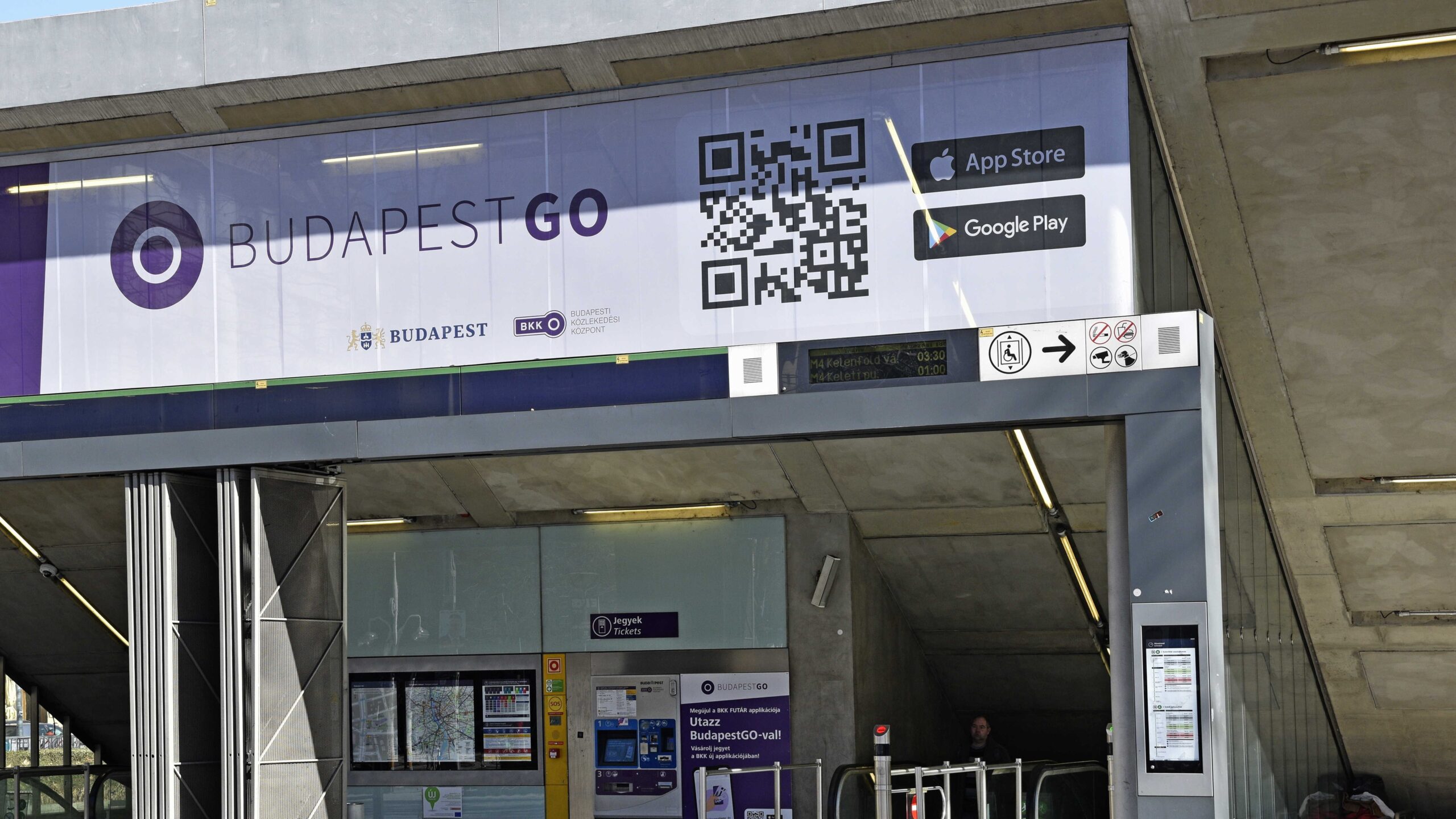The Centre for Budapest Transport (BKK) is advancing the BudapestGO app to simplify digital ticket use for travellers. In a statement on Wednesday the company reported a steady increase in the use of digital payment solutions within Budapest’s public transport system.
While early 2023 saw less than a quarter of BKK customers buying tickets and passes through BudapestGO, this figure has now risen to every third ticket or pass purchased via mobile. To address this shift, BKK is continuously researching customer preferences, tailoring its improvements based on feedback to make public transport more attractive to a wider audience.
The company plans to further simplify digital ticket and pass usage by enhancing the existing ‘metro’ button in the app. In the near future, a new ‘board’ button will be introduced for surface transport as well, appearing on both passes and daily tickets. This feature will be accessible directly in the app and as a widget.
Set for release in December, the new feature will eliminate the need for scanning a code when boarding. Passengers simply tap the ‘board’ button, select their current route, and a dynamic display will appear for verification, either by drivers at front-door boarding or at metro entry points.
In tandem with this update, BKK plans to gradually phase out the NFC-enabled stickers currently used for ticket validation on vehicles, replacing them with traditional QR code stickers.
This transition is motivated by the susceptibility of NFC stickers on vehicle exteriors to extreme weather, making them more prone to damage and costly to replace. Furthermore, only a small percentage of passengers use the NFC validation method. BKK emphasized that it constantly evaluates international practices and customer feedback to decide on the adoption or potential discontinuation of various digital payment solutions. BKK also clarified that it is progressively replacing damaged stickers with QR code versions and reminded passengers that these stickers are only needed for single-ticket validation, as pass holders need only to display their pass when requested.
Aligning with evolving customer payment habits, BKK is examining possibilities for expanding the Pay&GO system across Budapest. This summer, as part of a public procurement process, BKK conducted a preliminary market consultation to explore how to extend Pay&GO digital payments citywide and develop the system further.
Since the introduction of Pay&GO on the 100E Airport Express and the Millennium Underground (Metro Line 1), approximately 1.8 million tickets have been purchased via this system. BKK data reveals that nearly 35–38 per cent of tickets on the Airport Express routes and 25–30 per cent on the Millennium Underground line are now purchased through Pay&GO.
Related articles:








